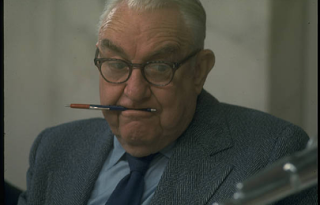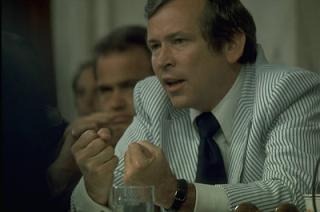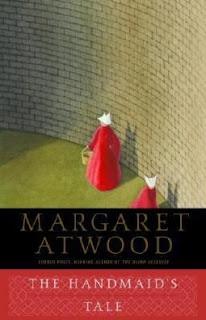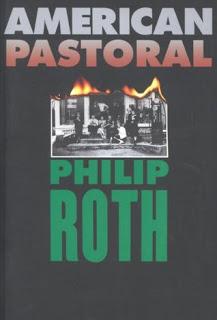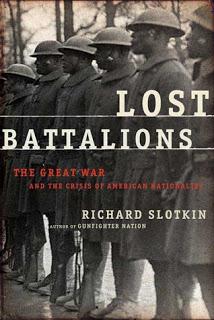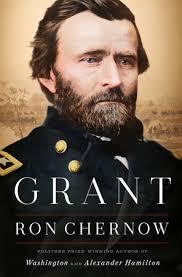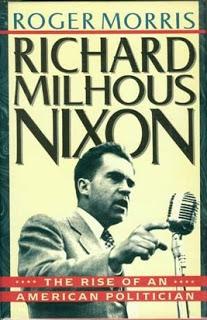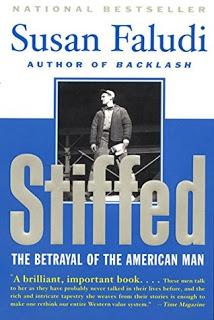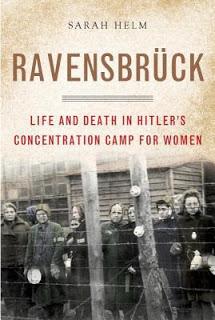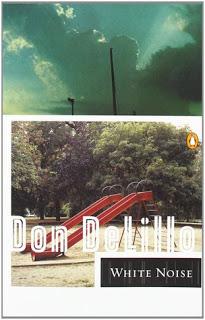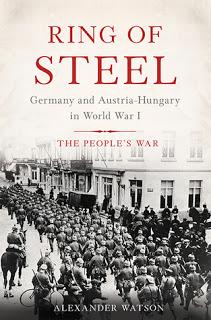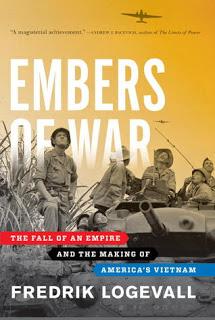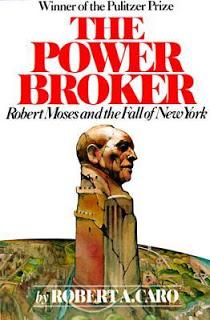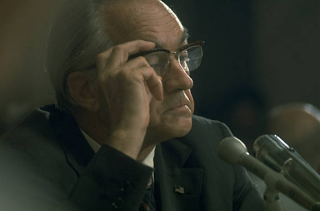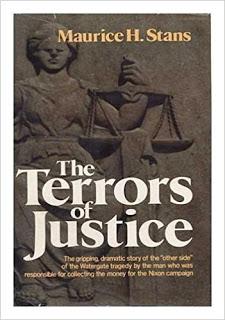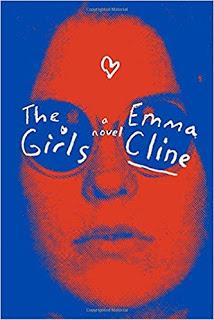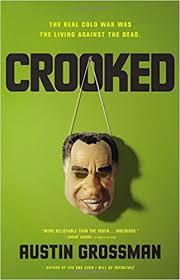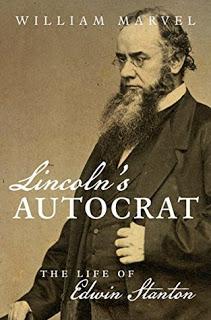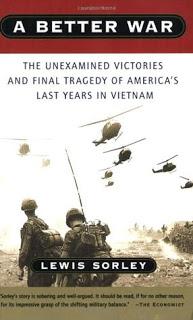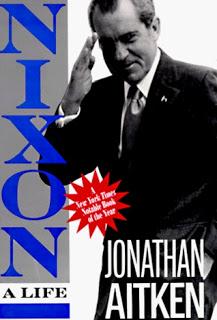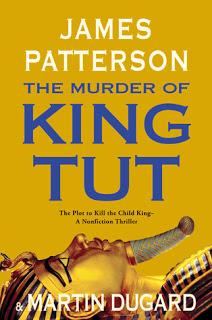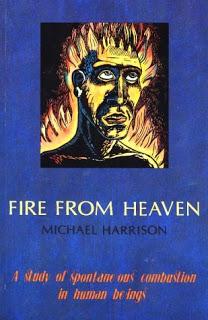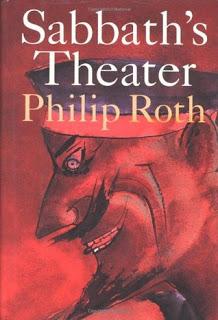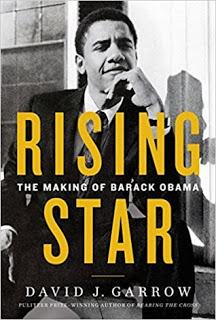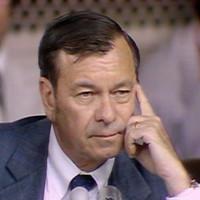Just a simple country blogger who doesn't know the finer ways of writing
Broken record time: 2017 has been another frustrating year; I'm still searching for full-time employment, though my part-time work as an historical researcher provides plenty of interesting material, from German spies to obscure political history. I've also kept busy writing: Anglotopia is publishing my first professional history article in February, I'm a contributor on a new entertainment blog/discussion site, and I'm even tinkering with a few fiction projects. Not an unproductive year, but not a typical one, either.
I have also read a lot: Goodreads says I've read 321 books in 2017, and there's still a couple weeks left to add to that total. Still, it seems a good cut-off point to do our semi-annual Best and Worst list.
Fifteen Best Books Read in 2017:
What did Groggy read and when did he read it?
As usual, I focused mainly on nonfiction, specifically American history. I did take a few prolonged forays into literature, namely the oeuvres of Philip Roth and Don DeLillo, with mixed results. Several of these are Pulitzer winners, because I'm nothing if not middlebrow.
15. Blood in the Water: The Attica Prison Uprising of 1971 and Its Legacy (2016, Heather Ann Thompson)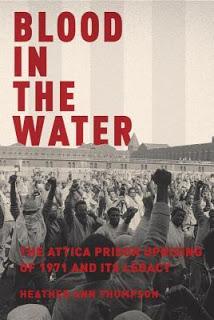
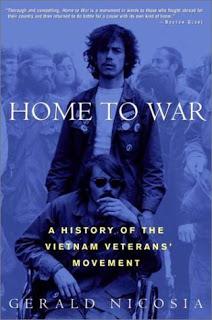
Of all the dystopian novels invoked over the past year, two seem most applicable to our current nightmare. One is Philip Roth's
The Plot Against America, wherein Charles Lindbergh becomes president in an alternate 1940s and slowly pushes America towards fascism. That book's sense of creeping dread rather than instant, horrifying change might have earned it a spot if not for Roth's cop-out ending. Margaret Atwood's classic is the other: besides a handsome and timely television adaptation, its simple, sparse portraiture of life under theocracy is a chilling mixture of banality and horror, scarier in the small moments than the larger ones. Atwood plays on the sharia regimes of Iran and Afghanistan as the dream project of America's Moral Majority; considering the current state of the Republican Party, it's impossible to avoid drawing comparisons. Orwell and Huxley are kid's stuff in comparison.
12. American Pastoral (1997, Philip Roth)Philip Roth is an extremely trying novelist, equal parts brilliant and annoying, insightful and self-indulg
ent, funny and exasperating. I'm equally likely to hate his work as love it, with markedly few books in between. American Pastoral, which won Roth the Pulitzer, is probably his most accessible work: though containing his usual preoccupations, story-wise it's a more straightforward mixture of family drama and historical fiction. His protagonist is an all-American Jewish football player who marries a beauty pageant winner and raises an estranged daughter who becomes a '60s radical, cultist and all-around troublemaker, forcing Dad to reassess his achievements and place in society. The driving force remains Roth's trademark angst about Jewish assimilation into America, though with more interior monologues and less masturbation. Unlike his weaker works, all of his characters are well-realized, with Roth offering them empathy rather than scorn, quiet tragedy rather than jarring, discordant irony.
11. Lost Battalions: The Great War and the Crisis of American Nationality (2005, Richard Slotkin)A major cornerstone for my First World War research for work, which also informed the Age of Wilson series I wrote here this summer.
Slotkin's excellent book depicts two units (the famous Lost Battalion, a polyglot unit of recent immigrants, and the all-black Harlem Hellfighters) who gained fame during the war despite, or possibly because, of their second-class status in American society. Slotkin's accounts of their harrowing combat experience alone make the book readable, but he's more interesting analyzing the broader social context of their heroism: early 20th Century progressive ideas about class, race and nationhood, military service as a route to social and political acceptance, their reception as, and reaction to becoming heroes. It's a marvelous work that fuses popular and analytical history in the best way.
10. Grant (2017, Ron Chernow)I loved Ron Chernow's
Alexander Hamilton before Lin-Manuel Miranda made it cool; it's one of the best biographies I've ever read, granting a much-maligned Founding Father incredible nuance and personality. Chernow's latest, a similarly expansive look at Ulysses S. Grant, stands atop a better-established foundation: rehabilitating Grant's become a cottage industry in recent years, with some authors overbalancing the ledger to claim him not only a great general, but an accomplished president. Chernow's alive to Grant's shortcomings, from wrestling with alcoholism to allowing corruption to flourish in the White House, while also pointing up his strengths as a commander: innate leadership, tactical genius, political shrewdness worthy of Eisenhower. It's not the most flattering portrait of Grant available, but it's among the fullest, most convincing and definitely the most human.
9. Richard Milhous Nixon: The Rise of an American Politician (1990, Roger Morris)In my endless quest for Nixon Knowledge, I've found that books focusing on specific parts of his life and career outshine efforts at cradle-to-grave biography (though John A. Farrell's recent book was
a decent try). Roger Morris, a one-time Nixon staffer, wrote one of the best (planned as the first in a sadly never-completed series). It's a massive but absorbing tome on Nixon's early career through his election to the Vice Presidency, probing Nixon's background and personality in the context of the wild, ever-changeable climate of California politics. Though critical of his old boss, Morris is more thorough than Stephen Ambrose and less accusatory than Fawn Brodie, providing a sweeping look at America in the Depression and early Cold War through this most ambitious of politicians. His blow-by-blow accounts of the Alger Hiss affair and the Checkers Speech are as good as anything I've read about Nixon, who emerges as a man with drive, skill and the mixture of hard-line ideological posturing (his constant Red-baiting) and surprising pragmatism (supporting the Marshall Plan and denouncing more extreme Republicans) that marked his entire career. A must-read for any Nixon aficionado and American history buff. 8. Those Who Leave and Those Who Stay (2013, Elena Ferrante)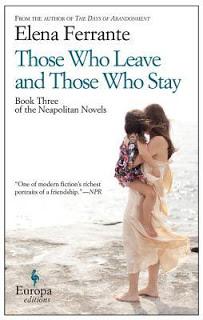
Susan Faludi, having penned one of the seminal works on feminism and misogyny (
Backlash), decided to address the opposite question - "What about the men?" - in a surprisingly sensitive, intelligent fashion, albeit not in the way the so-called "men's rights" crowd may enjoy. Interviewing everyone from factory workers and Cleveland Browns fans to military cadets and Sylvester Stallone, Faludi shows the wide-ranging effects of societal sexism, not only forcing women into subordinate roles but forcing men to torture themselves into conforming with pictures of manliness at cost to their livelihoods and physical and mental well-beings. It's timelier than ever for our debates about toxic masculinity, showing how men as well as women are victimized by patriarchal culture.
6. Ravensbruck: Life and Death in Hitler's Concentration Camp for Women (2015, Sarah Helm)Sarah Helm's Ravensbruck depicts one of the less-remembered camps of the Third Reich, where Hitler's regime imprisoned problem women (from political dissidents and Jews to "asocial" prostitutes and criminals). Helm plunges into day-by-day stories of the inmates' struggles to survive. This gives the book a gripping immediacy that inevitably grows horrifying as the narrative progresses. Helm unflinchingly shows rivalries between different factions in the camp, not to mention trademark fascist abuse ranging from medical experiments to random executions. Then the Red Army shows to "liberate" the camp and rapes everyone. Typical of Holocaust works, it's dark, depressing and disgusting; the one redeeming feature is that you come to admire and respect the women who managed to survive the war with their dignity (if not necessarily their bodies or minds) intact.
5. The Road to Jonestown: Jim Jones and the Peoples Temple (2017, Jeff Guinn)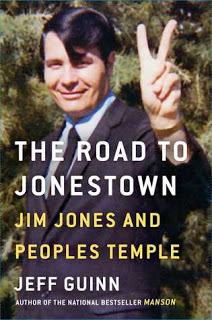
3. Ring of Steel: Germany and Austria-Hungary in World War I (2014, Alexander Watson)An imposing deep dive into the Central Powers' experience in World War I, written by a masterful historian. At worst, Watson's prose veers towards academic and dry in spots, but the book's content more than makes up for it: it's a seamless kaleidoscope of conflict, from the trenches to the German High Command, from the Hapsburg court to German civilians starving under British blockade, covering the war from all conceivable angles, showing how thoroughly it rotted Germany and Austria, in particular, both from without and within. Full review here.
2. Embers of War: The Fall of an Empire and the Making of America's Vietnam (2012, Frederik Logevall)Ken Burns' Vietnam documentary inspired a deep dive into Vietnam War literature, of which Logevall's book was the highlight. Covering France's doomed efforts to reassert dominance in Indochina following World War II, with the increasing assistance of the United States, Logevall paints an amazingly layered portrait of a well-worn subject. More than Bernard Fall's military-focused works on the same period, it focuses as much on the political mistakes as the military side of things, showing the miscalculations by Western leaders (the French, asserting their empire; the Americans, fearing Communist expansion) at all levels, French stubbornness and Eisenhower's escalating aggression, the Vietnamese torn between nationalist euphoria and communist repression. It makes for one of the most compelling books ever published on Vietnam.
1. The Power Broker: Robert Moses and the Fall of New York (1975, Robert A. Caro)If nothing else, The Power Broker makes an inherently dry subject endlessly fascinating. Ostensibly a biography of Robert Moses, the building and public works commissioner of New York for nearly five decades, it's many things: a painstakingly detailed account of urban planning; a sweeping, multi-generational chronicle of New York politics; an examination of how an indifferent government and careless bureaucrats impede on everyday lives; the perils and shortcomings of managerial liberalism; the importance of personality and ambition in shaping history. Like Caro's multi-volume Lyndon Johnson biography, it's a grand tragedy in Citizen Kane style: an idealist who abandons his principles to gain and exercise power for its own sake, becoming influential but unloved. Possessing an eye for rich detail and characterizations that Charles Dickens would envy, Caro's tome is one of the greatest books, period, that I've ever read. Honorable mentions:The Half Has Never Been Told: Slavery and the Making of American Capitalism (2014);
Hue 1968: A Turning Point in the Vietnam War (Bowden);
The Years of Lyndon Johnson: The Path to Power (Caro);
Autumn of the Black Snake: The Creation of the First American Army and the Invasion That Opened the West (Hogeland);
The Black Jacobins (James);
Goodbye Columbus (Roth);
Thunder in the Mountains: Chief Joseph, Oliver Otis Howard and the Nez Perce War (Sharfstein);
Bobby Kennedy: The Making of a Liberal Icon (Tye);
KL: A History of the Nazi Concentration Camps (Waschmann).
Ten Worst Books Read in 2017:
Maurice Stans resents Groggy placing him on a list that doesn't include Ray Kroc
This year's garbage mostly falls into two categories: mendacious political books, or lousy, overwrought fiction. Sometimes the line between the two becomes nonexistent.
10. The Terrors of Justice: The Untold Side of Watergate (1978, Maurice Stans)Generally, you know what you're getting when you plunge into a Watergate memoir: shoddy writing, self-justification, occasional conspiracy theories and constant deflection and blame-shifting. Even by that standard, this book by Maurice Stans - Nixon Commerce Secretary and CREEP financier - is uniquely painful. In a rationalization worthy of Roy Moore voters, Stans argues Nixon's lies were okay because Jesus lied too (!!!). It's his robust defense of American businessmen peripherally caught in the scandal that really grates. Not least Stans' affection for McDonald's tycoon Ray Kroc, who received negative press for donating $250,000 to Nixon's campaign - a plight that's treated as if Sam Ervin planted Kroc's head on a pike. Not content with reiterating Kroc's martyrdom
twice, Stans stops his narrative to gush over the tasty Big Mac he ate while visiting his wife in hospital. The Watergate memoir for the One Percent, especially those with a weakness for fast food.
9. The Girls (2016, Emma Cline)The Girls came with an amazing amount of hype (not least for its author's record-smashing book deal) for a novel not written by J.K. Rowling. Despite its intriguing premise (a '60s runaway joins a Manson Family style cult), the book's hampered throughout by Cline's singularly awful prose. At best, the book reads like a cut-rate pastiche of Jeffrey Eugenides, with its florid scenery descriptions that are either juvenile ("the water was as blue as the sky") or asinine (describing the faux-Manson's genitals as "flat and purple like a slug"...yeah, I'm not touching that). At worst, its examination of teen alienation falls dreadfully flat, thanks to characters envious of cardboard. Robin Wasserman's
Girls on Fire, released last year to less fanfare,
makes an entertaining pulp read from a similar premise; Cline's stab at "serious" literature, in contrast, chokes on its own pretension.
8. Crooked (2015, Austin Grossman)Maybe if I tell you this novel involves Richard Nixon battling the Supernatural with Presidential magic, you'll
think it sounds like silly fun. Well, it's not: Grossman's deadpan seriousness sucks all enjoyment from the premise, and the book's world-building is half-baked and nonsensical. The book contains an all-powerful Evil who flits about doing random bad while Nixon struggles to master his wizard powers, and it never comes together into anything more than passing strange. The nicest thing I can say is that Grossman did his historical research. Beyond that, it's neither entertaining nor clever.
7. Lincoln's Autocrat: The Life of Edwin Stanton (2015, William Marvel)William Marvel is a garbage Civil War historian who's written volumes claiming Andersonville wasn't so bad and Ambrose Burnside was secretly a brilliant general. Next on his hit parade is Edwin Stanton. No one's ever accused Lincoln's Secretary of War of being likable, cuddly or over-concerned with civil liberties. Marvel takes that reasonable criticism and turns it into full-on character assassination. Whenever possible, he reads the worst motives into Stanton's political career and actions in the War Department; when it's not, he grasps and insinuates based on his own inferences, when not engaging into flagrantly ahistorical nonsense like blaming Lincoln for provoking secessionists into action or defending poor Andrew Johnson. Such a figure as Stanton probably deserves little affection, but some nuance about the needs of wartime leadership would help. Thankfully, Walter Stahr recently penned his own Stanton biography which almost
has to be better.
6. A Better War: The Unexamined Victories and Final Tragedy of America's Last Years in Vietnam (1999, Lewis Sorley)Ken Burns' The Vietnam War erred in giving a mouthpiece to Lewis Sorley, a hack best-known for writing this wretched bit of revisionism. It shamelessly fluffs the reputation of Creighton Abrams, who in Sorley's view salvaged America's debacle in Vietnam until the liberals and hippies snatched it back. This Abrams is a veritable Godhead capable of no wrong or ill thought: he's compassionate about the Vietnamese, passionate about good intelligence, appalled by unnecessary civilian casualties - none of which he really tries to support beyond bald statements and the man's own quotes. Or blatant revisionism, such as proclaiming the secret bombing of Cambodia legal (it was the media who was wrong for reporting it, of course) or that the disastrous Lam Son 719 raid was, somehow, a smashing success. Or self-contradiction, like claiming that Nixon's Cambodian "incursion" was both a decisive victory and a pointless distraction from the "real" project of pacifying South Vietnam, or cluelessly declaring the Vietcong "Red fascists." Or outright bullshit, as when he declares the war "won" by 1970, if only Congress and Walter Cronkite hadn't punted. It's a comforting narrative for pseudo-patriots who think America can do no wrong, but it has no basis in reality. 5. Nixon: A Life (1994, Jonathan Aitken)For a few years in the early '90s, historians decided that Richard Nixon wasn't really
that bad if you manage to overlook Watergate (which, according to many of them, was a frame-up anyway). Some were merely misguided (Joan Hoff's
Nixon Reconsidered), others mendacious (Len Colodny's conspiracy-mongering
Silent Coup); Aitken manages to achieve both. Painting Nixon as a well-meaning tough guy besieged by ruthless liberal Jews plays into the Old Man's own paranoia, but Aitken's decision that Nixon was somehow a genuine progressive on civil rights, environmentalism, etc. if you ignore his abject cynicism and disdain. Then Aitken tells us that Watergate was a Deep State coup, at which point sane readers choke on their own vomit. Thankfully, the last two decades have shown (through previously-unreleased White House tapes and documents) that Nixon was, if anything, even
more vile than his angriest detractors imagined. I can't wait untilsome future historian sits down and pens
Trump Reconsidered.
4. The Murder of King Tut (2009, James Patterson and Martin Dugard)Disclaimer: I have read none of James Patterson's oeuvre and I'm not about to start. He may well be great
at airport thrillers, but he should stay the hell away from nonfiction. Co-written by Bill O'Reilly ghostwriter, this wretched book commits endless sins against the very idea of history. Besides building a story around the (mostly discredited) idea of Tut's murder by political enemies, Patterson plumps his narrative with cardboard characterizations and lame invented dialog that bears less resemblance to Ancient Egypt than a Yummy Mummy cereal box. My favorite howler wasn't the Egyptian nobles joking about their divine status or the Pharaoh enduring jibes at his impotence, but a mean teacher telling Kid Tut to "sit down and practice your hieroglyphs." As historical fiction this would be bad enough; as a book pretending to be history it's inexcusable3. Fire from Heaven: A Study of Spontaneous Combustion in Human Beings (1976, Michael Harrison)
Even by standards of paranormal literature, Fire from Heaven is hilariously, outrageously dumb. What truths does Mr. Harrison, in his infinite wisdom, propose that scientists miss about spontaneous human combustion, a folkloric phenomenon which Harrison obsesses over in grisly detail and at interminable length? He can't decide. Perhaps it's a vivid, mysterious life force "proven" by psychics and Kirilian photography. Perhaps it's ball lightning or fire fluttering from the sky. Perhaps it's God wreaking vengeance on the unrighteous (Harrison obsesses over one victim carrying a melted religious artifact). Maybe it's poltergeists, Ley Lines or the critters that mutilate cattle. All Harrison knows is that science is stupid, doctors are dumb and if you buy his book and believe in yourself, you too might one day mysteriously burn to a crisp. We should all be so lucky.2. Sabbath's Theater (1995, Philip Roth)Depending on personal taste,
Sabbath's Theater is either Philip Roth at his best and most outrag
eous, or at his worst and most disgusting, misogynist and self-indulgent. From its place on this list, you can guess where I land. This is peak Great American Novelist, Grown Old, Whines About His Dick: a retired puppeteer bones every female he meets, wondering afterwards why these nasty women don't appreciate the honor. Inf that’s not charming enough, he also steals teenage girls’ panties, shouts racial slurs and argues with his mom’s ghost (!?!). It makes Portnoy’s Complaint seem refined, but at least that book’s constant ejaculations are interspersed with self-examination and something resembling humor. With Roth failing to grant his “hero” any depth, humor or pathos, there's only gross, scalding nastiness, culminating in Sabbath and his mistress arguing interminably about peeing on each other. Great.1. Rising Star: The Making of Barack Obama (2017, David J. Garrow)Last and certainly least, this monstrosity: a 1,400 page pseudo-biography long on words but short on thought, insight or reality. Garrow, author of an excellent biography of Martin Luther King, seems an ideal biographer of America's first black president. Too bad the book is riven with gossipy minutia and scurrilous nonsense - an ex-girlfriend telling us Obama was sexily arrogant, several long passages debating whether Obama used hard drugs in his youth, a bitchy epilogue summarizing his presidency as failed due to his inability to compromise. Which isn't to mention the book's high point of psychoanalytical absurdity, when Garrow interprets Obama seeing
The Unbearable Lightness of Being in college as proof that he considered his white mother his own "unbearable lightness." This is Fox News garbage disguised as scholarship, which would be risible enough without coming from a Pulitzer Prize-winning Civil Rights historian. So it goes.
Yes, but in my country we're still wondering when you'll get back to films?
Hold your horses, Talmadge. I'll take a look and see if there's enough reviews for a Best and Worst films list. If not, see you (hopefully) next year!
